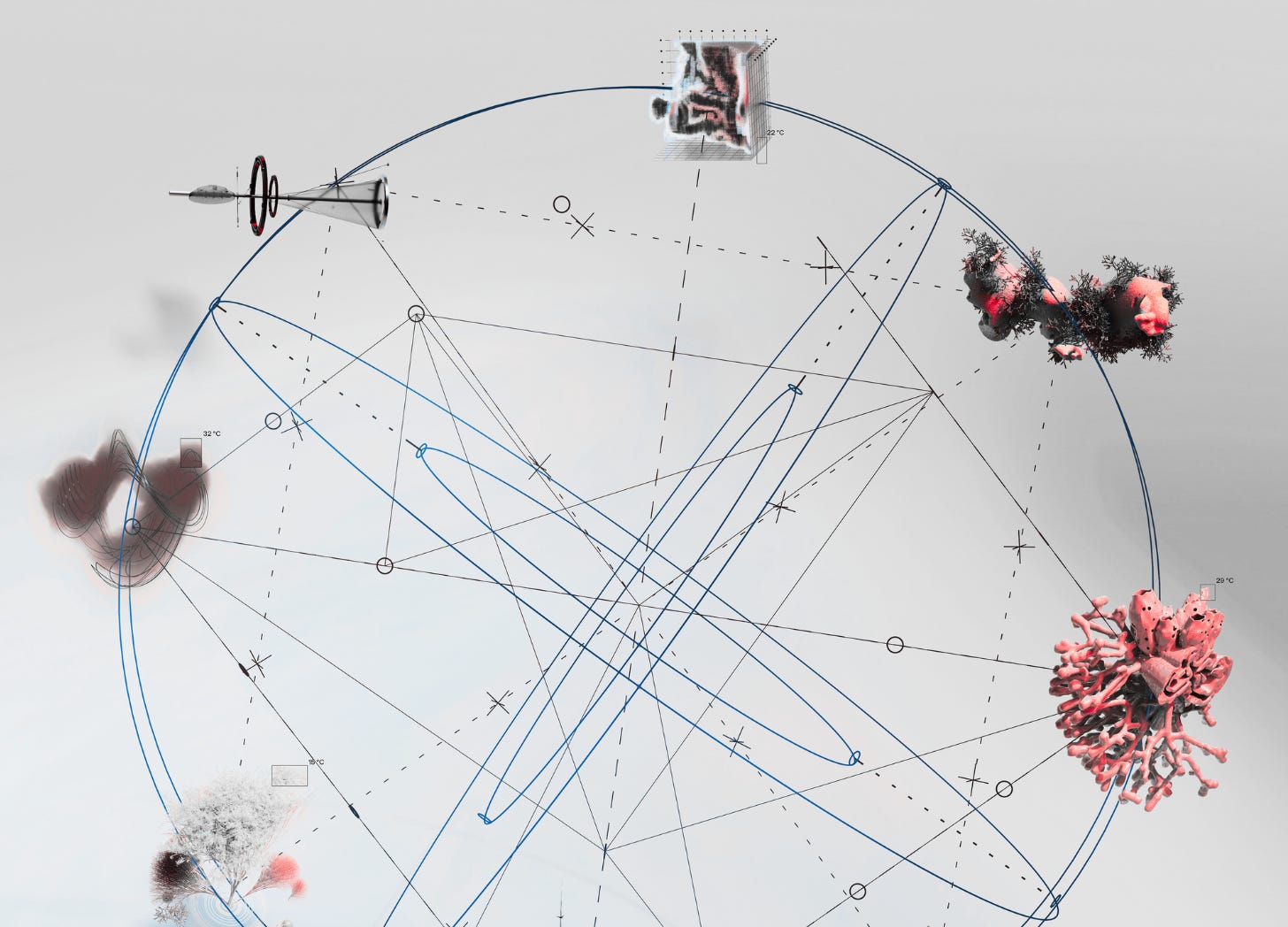This is the first of the many contemplative exchanges between myself and my Samkhya (philosophy) teacher, Sudalai Mani, exploring where AI and ancient Indian philosophy meet. These conversations help us understand how thousands of years of wisdom might shape our thinking about consciousness, artificial intelligence, and what it means to be human in an age of machines.
The Question That Started It All
"In Samkhya philosophy, consciousness (Purusha) is described as the unchanging witness that observes but doesn't act, while Prakriti (nature/matter) does all the doing. As we build AI systems that can seemingly 'observe' and 'act,' how do you see this ancient framework challenging or informing our current debates about AI consciousness? Are we trying to create Purusha, Prakriti, or something entirely different?"
Here's how Mani Sir responded:
When Consciousness Becomes a Field
That's a great question, and actually, the word consciousness carries different meanings depending on the context. In our everyday usage, we often think of it as the ability to feel, sense, or experience. But when you dive into the Indian philosophical systems, the concept becomes far more layered and nuanced.
Take the Sāṃkhya philosophy, for instance. It introduces a very interesting view. In Sāṃkhya, the term Purusha is often loosely translated as consciousness, but it's actually more accurate to think of it as a field. A field of awareness. It doesn't act. It doesn't interfere. It's simply present, like an observer. And anything that interacts with this field (like our body or mind, which Sāṃkhya categorises as material) starts to feel, to sense, to experience. So consciousness isn't something the body or mind generates. It's something they acquire through interaction with this field called Purusha.
The Gravity of Awareness
Let me explain that with an example. Think about gravity. Gravity doesn't do anything actively to objects. It just is. But the moment something exists in the gravitational field, it behaves in a particular way. It falls, it orbits, it moves along a curve. As Einstein explained, gravity is essentially a curvature in space, and objects move the way they do because they're in that field, not because gravity is pulling them. It's the object's nature to move that way within the field.
The God Particle
This connects beautifully to a more recent (2012) scientific discovery: the Higgs field. You might remember the buzz around the Higgs boson, or what headlines called the "God particle." What scientists were really celebrating was confirmation of the Higgs field, which exists everywhere throughout the universe. And what does it do? Any particle that enters this field gains mass. Without the Higgs field, everything would just remain as pure energy. Massless, formless. Light, for instance, doesn't interact with the Higgs field, and that's why it has no mass. But we do interact with it, and that's why we have form, structure, and weight.
Now, take that idea and apply it to Sāṃkhya's Purusha. You could think of it as a consciousness field—a field that, when material things interact with it, brings about the experience of consciousness. So the body and mind, though material, begin to feel and sense because they're in touch with this field.
From Fields to Machines
This opens up a fascinating possibility for modern science and AI. If we could discover or replicate such a consciousness field (something like a "God field" for awareness), it might one day be possible to give consciousness to machines. Right now, AI can mimic the mind. It can think, calculate, and even imitate emotion. But it doesn't truly experience. It doesn't feel. That leap from mind to consciousness would need the discovery of something much deeper. A field like Purusha.
And maybe, just maybe, if we could invest the same level of effort and resources that went into discovering the Higgs boson (building the world's largest machine, no less), we might one day uncover this consciousness field. This would completely change our understanding of life, intelligence, and what it means to be aware.
[writer’s note] Critics might argue that consciousness fields are untestable speculation and that human-AI bonds simply reflect our pattern-seeking nature rather than genuine connection. But even if AI never achieves consciousness, our relationships with convincingly conscious-seeming systems will reshape human intimacy regardless, making these questions important.
Why Am I Asking These Questions? I found myself thinking about something that's been quietly unfolding around us. Most AI development isn't actually aimed at creating consciousness. Companies are building systems focused on work capabilities and productivity, often sidestepping the consciousness question entirely. Some researchers at places like Anthropic and DeepMind do work on consciousness-adjacent problems like AI interpretability and self-reflection, but even they seem to know that true consciousness might be impossible to engineer.
Here's what bothers me: humans are forming emotional connections with these systems anyway.
I watch my non-tech friends develop routines around their AI conversations. They ask ChatGPT about relationship problems, share daily frustrations with Claude, even say "thank you" to systems that don't need gratitude. They're not asking whether the AI is conscious. They're just responding to it as if it were conscious enough.
When a third mind enters our emotional landscape, when we start having intimate conversations with something that responds with apparent understanding and care, how does that change the conversations we have with each other?
The question isn't whether AI can be conscious. It's how our own lives (the human experience) changes when we start relating to intelligence that feels conscious enough to matter.
There's another question brewing from our conversation about consciousness fields that I didn't get to ask Mani Sir: even if consciousness is a field, why would interacting with it create the felt experience of "what it's like to be" rather than just more sophisticated information processing? That's a question for our next exchange.
Signing off, Kalyani Khona


